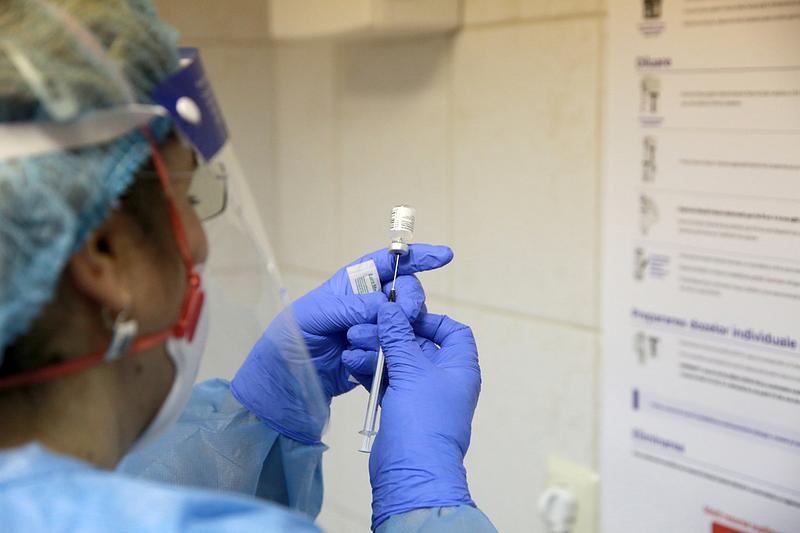Romania starts vaccinations with fourth dose of COVID vaccine, but more than half of the population had none



Romania has started administering the fourth dose of COVID-19 vaccine although international health organizations haven't issued recommendations on the need for a fourth dose yet. More than half of Romanians are unvaccinated and only one in ten Romanians have taken the booster shot.
Romanians can get their second booster (4th dose) of the COVID vaccine produced by Pfizer and BioNTech, starting May 16, 2022. To be eligible, those willing to get the fourth dose must: be at least four months away from when they had the first booster (3rd dose), be over 18 years old, and have had at least one mRNA dose previously.
The fourth shot will be administered in vaccination centers and family medicine practices around Romania, and will only be done with the Comirnaty vaccine produced by Pfizer. It is important to note that most vaccination centers that are still operating are located in hospitals. After July 1, COVID-19 vaccinations will be conducted solely in family medicine practices. To schedule an appointment, people who want the second booster must address vaccination centers and family medicine practices directly, without going through the vaccination platform.
According to Romania’s Health Ministry, the fourth dose is recommended for those over 60 years old, but anyone over 18 can get it. The fourth shot is also accompanied by a certificate attesting to additional immunization.
The Romanian authorities do not recommend vaccination with a fourth dose for people who were previously vaccinated with the COVID-19 vaccine produced by Johnson & Johnson.
There are mixed opinions worldwide over the necessity of a fourth dose. So far, the European Centre for Disease Prevention and Control (ECDC) and the European Medicines Agency (EMA) have maintained their recommendation that only those above 80 years of age should get a fourth shot of the mRNA COVID-19 vaccine.
“There is currently no clear evidence in the EU that vaccine protection against severe disease is waning substantially in adults with normal immune systems,” the ECDC and the EMA noted in their joint press release, “and thus no clear evidence to support the immediate use of a fourth dose.” At the same time, the two agencies highlighted that governments may want to wait for updated vaccines to restart their vaccination campaigns in the autumn.
Previous studies have shown that maximal immunogenicity of mRNA vaccines was achieved after three doses.
A recently published article in the prestigious Lancet medical journal shared the latest findings regarding the effectiveness of the fourth dose. The fourth shot was found to produce largely similar effects as the third: it was well tolerated and boosted immunity. However, the same trial showed that some participants, especially those who had been vaccinated and had also been infected, already had high antibody levels, making the fourth dose unnecessary.
Fourth shots of either the Pfizer or half dose of the Moderna vaccines were proven to be safe, boosting immunity “over and above the third dose,” said Saul Faust, the trial lead. “But there is a hint from some of the people in the trial that it might reach a ceiling. That will depend on the vaccine, the host immunity, and the dose,” he added. The study in question had several limitations, primarily the small number of participants (166). Another study, with an even smaller cohort (154), found the fourth shot to be 65% effective against symptomatic disease caused by the Omicron variant.
The World Health Organization, the global medical authority, has yet to give an official recommendation on a fourth dose. In an interview for CNBC, WHO chief scientist Soumya Swaminathan said that there is no evidence of the need for a fourth shot at this time.
Roughly 42% of all Romanians are fully vaccinated (50% of adults), and only 9% (11%) have had a booster shot. This places Romania on the lower end of immunization in Europe, below the EU average of 72.6% fully vaccinated (83%), and 51.7% (62%) with a booster.
radu@romania-insider.com
(Photo source: Dreamstime.com)